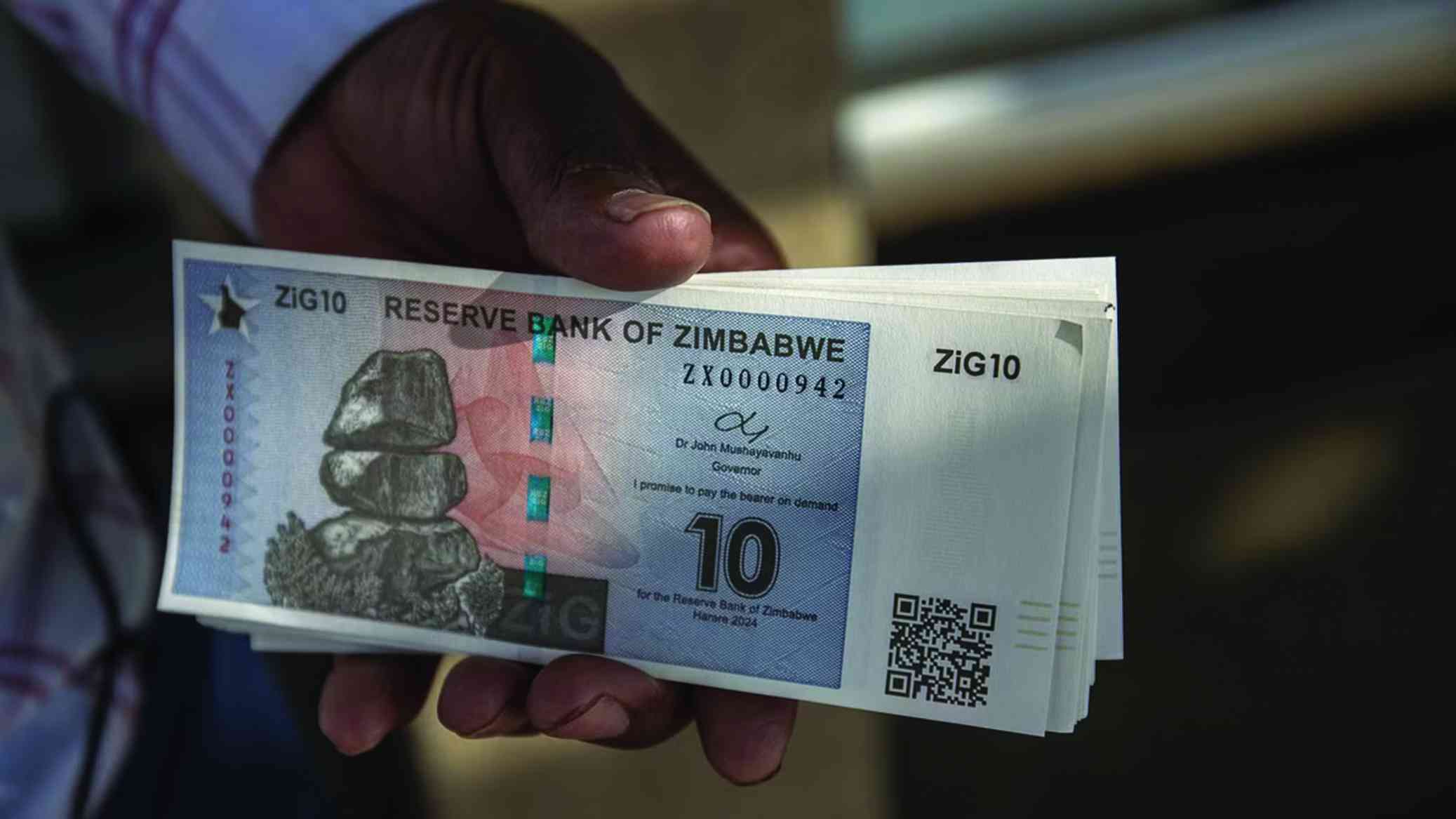
Zimbabwe’s biggest industries have refreshed deep seated anxieties over a botched interbank market, saying strategic firms were among those haemorrhaging under the weight of a battered willing buyer willing seller (WBWS) forex market introduced this year.
Uncertainties over fresh waves of currency induced industrial turmoil were palpable in a frank report dispatched to Confederation of Zimbabwe Industries (CZI) members recently, which singled out state power utility Zesa among casualties, before warning that blowbacks could rip through fragile markets.
Yesterday, Reserve Bank of Zimbabwe (RBZ) governor John Mushayavanhu told the Zimbabwe Independent a series of aggressive interventions announced last Friday would address the difficulties confronting markets.
But in its report — sent to members before last week’s shock 43% devaluation of the currency, CZI spoke of troubles in accessing fairly priced foreign currency on the interbank platform.
“The truth is that businesses are failing to access foreign exchange on the WBWS system,” CZI said in the 12-page report titled ‘Inflation and Currency Developments Update and Review of the Mid - Term Monetary Policy Statement (MPS)’.
It also gave industries’ impressions on the rejection of Zimbabwe Gold (ZiG) - a structured currency introduced five months ago — but has been rejected by Zimbabwe’s cautious markets.
“The Reserve Bank is the only seller on the market. This is not a sustainable situation. Even critical entities such as Zesa are reportedly not able to access foreign exchange on the WBWS platform. These difficulties are helping fuel the negative sentiments around ZiG,” CZI noted.
“The governor stated that the RBZ has been intervening in the market using 50% of the surrender export proceeds to ensure that bonafide and genuine pipeline demand from banks is satisfied. He also assured that RBZ will continue to participate in the foreign exchange market to liquefy the foreign exchange market with 50% of the 25% export surrender to ensure operational flexibility within the supply and demand dynamics,” CZI said.
- All eyes on new RBZ boss as dollar collapses
- Structured currency is foredoomed
- A defining moment for Mushayavanhu
- US$575m war chest to anchor new currency
Keep Reading
On arrival at RBZ this year, one of central bank governor John Mushayavanhu’s immediate actions was disbanding a crumbling forex auction system introduced in 2020, which had backlogs from allotted funds.
He replaced it with a ‘refined interbank foreign exchange market’ - WBWS.
CZI said the interbank market had been deserted – leaving RBZ as a lone ranger on the supply side.
Introduced in April, ZiG has surrendered value on the formal markets, sliding from US$1: ZiG13,56 on introduction to about US$1: ZiG13,95 currently.
But it has plummeted by frightening margins on the black market, depreciating from about US$1:ZiG16 on introduction, to about US$1:ZiG40 this week.
Industries’ concerns over Zesa came as Zimbabwe has battled to end its worst power crisis in three decades, compounded by tumbling water levels at Lake Kariba, where Zimbabwe operates a 1 050 megawatt (MW) power facility.
A 920MW thermal power station about 600 kilometres north-west of the country has been flustered by sporadic technical gridlocks since undergoing a US$1,5 billion facelift last year.
This has precipitated current wave of blackouts lasting over 16 hours daily.
It means Zesa requires not less than US$200 million annually, to import power.
In August, the RBZ relaxed tough measures spelling out how outstanding forex auction funds would be repaid.
CZI welcomed the changes, but said more reviews would be crucial to achieve a fair deal.
“The new position is that instead of getting NNCDs (non-negotiable certificates of deposit), business would now get tradeable government bonds.
This is a welcome development as it means that the resources which were now tied up in NNCDs for more than a year can now be unlocked and utilised currently.”
“However, businesses holding these instruments will be exposed to exchange rate fluctuations. We, therefore, recommend that the instruments be set up so that they are redeemable in ZiG at the ruling official rate on maturity. To mitigate value loss in respect of outstanding surrender and auction payments, they should be made redeemable in US dollar or be redeemable at the ruling exchange rate as at date of maturity,” the report noted.
Mushayavanhu said: “The RBZ is fully aware of the transitory foreign currency pressures experienced in the recent months emanating from the increased demand for foreign currency at a time when the economy was experiencing acute foreign currency shortages as reflected by the increase in pipeline payments”. “The recently announced measures will assist in curbing speculative behaviour thereby ensuring that available foreign currency is utilised for bona-fide foreign payments. These measures are also expected to encourage generators of foreign currency to participate in the interbank market thus easing the foreign currency pressures in the economy,” he said.










